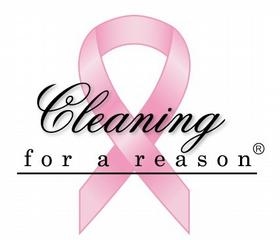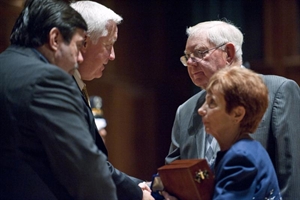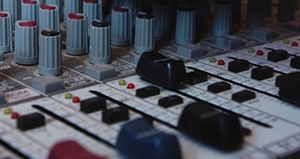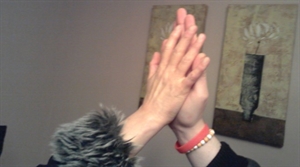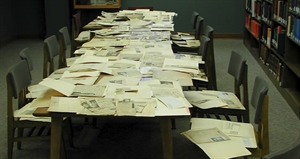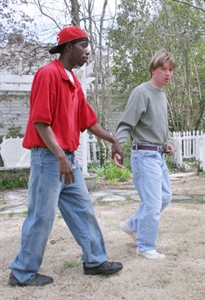International Amateur Radio Day 2024 is on Thursday, April 18, 2024: how to build amateur radio communication system?
Thursday, April 18, 2024 is International Amateur Radio Day 2024. World Amateur Radio Day - International Amateur Radio Union World Amateur Radio Day
As an Amazon Associate I earn from qualifying purchases.

The things and equipment to do those things are varied. Some hams just like to talk with friends locally with VHF or UHF FM Hand-held radio over a local repeater or direct with mobile or base stations. Other hams talk with hams all over the world using high frequency (HF 3-30 MHz) radios. They might communicate using computers, slow-scan video or Morse code. Old fashion radio-teletype machines are still sometimes used. They might allow non-hams to communicate using phone patches.
Some hams use equipment for radio control of model planes or cars. Some hams talk via satellite links or to astronauts on the International Space Station. Some hams talk to each other by bouncing signals off the Moon.
Some hams focus on providing communications during natural disasters or other emergencies. Some hams like the art of operating low-power (5 watts or less) HF stations in the middle of nowhere with basic minimal equipment and communicating around the world. Some hams build their own radios and equipment for the cost of parts.
So to answer your question on what equipment is needed, its range and cost comes down to what you want to do in amateur radio.
VHF and/or UHF hand-held radios cost $200 - $300. Mobiles cost $250 - $350. A full-featured base $300 up.
HF radios cost $500 to $2,500 depending on features. A low-power HF radio cost less than $100. Some of the digital modes and slow-scan TV signals can be done by hooking up your computer to the radio via the sound card. All that's necessary is the software and an inexpensive interface (almost nothing if you build it yourself).
You can make a simple HF dipole antenna that works on a couple bands for $10 of parts. You can buy a tri-band Yagi HF antenna for $250 - $300.
I'll take your question for how easy is it to do to mean how easy is it to get your amateur radio license. You need to know electronic and radio theory, operating practices and regulations, familiarity with antennas, feed lines and various type of radio circuits and safety.
There are three levels of US amateur radio privileges; Technician, General and Amateur Extra. Each level requires you to know more of the above stuff. Technician gives you full amateur privileges 50 MHz and above. Some of those things I listed above. Technician also gives you limited sub-bands in HF for Morse code although you get limited voice privileges on the 10 meter band.
The General license gives you all amateur privileges on all amateur bands except for segments reserved for the highest license, Amateur Extra.
Your best bet would be to get "The ARRL Ham Radio License Manual". I got mine from Amazon.com. This covers everything you need to know for the Technician exam. The exam consists of 35 multiple choice questions. If you get 26 correct, wait a few days for the FCC to process your results and your a Technician Class Amateur Radio Operator! There used to be a Morse code requirement, but no more.
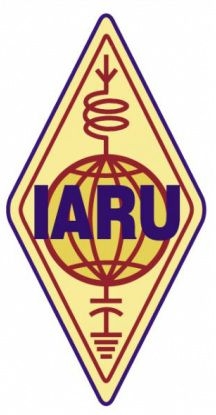
Everything is a national something day, What is April 18th, 19th, 20th and July 10th?
You need Chase's Calendar of Events
You might find a copy at your local library.
Apr 18,2009
Zimbabwe: Independence Day
Adult Autism Awareness Day
International Amateur Radio Day
National Auctioneers Day
Record Store Day
Teach Your Daughter To Volunteer Day
National Wildlife Week begins (Apr 18-26).
NAB 2009/National Broadcasters Convention begins at Las Vegas, NV (Apr 18-23). See www.nabshow.com
Apr 19, 2009
Pascha (Orthodox Easter Sunday)
Divine Mercy Sunday (Catholic)
1775: The Battle of Lexington and Concord
1943: Warsaw Ghetto Revolt
1989: Explosion on the USS Iowa
1995: Oklahoma City Bombing
Sierra Leone: National Holiday
Swaziland: King’s Birthday
Uruguay: Landing of the 33 Patriots Day
John Parker Day
National Hanging Out Day
Patriots’ Day in Florida
Administrative Professionals Week begins (Apr 19-25).
National Coin Week begins (Apr 19-25).
National Karaoke Week begins (Apr 19-25).
National Playground Safety Week begins (Apr 19-25).
National Volunteer Week begins (Apr 19-25).
Police Officers Who Gave Their Lives in the Line of Duty Week begins (Apr 19-25).
Sky Awareness Week begins (Apr 19-25).
Week of the Young Child begins (Apr 19-25).
WOC Nurse Week begins (Apr 19-25).
Apr 20, 2009
Boston Marathon—113th running.
London Book Fair begins (Apr 20-22).
World’s Biggest Fish Fry begins at Paris, TN (Apr 20-26).
Birth anniversary of Tito Puente, The King of the Mambo (1923-2000).
Happy Birthday! Carmen Electra, Nina Foch, Crispin Glover, Jessica Lange, Joey Lawrence, Don Mattingly, Shemar Moore, Ryan O’Neal, Pat Roberts, Steve Spurrier, John Paul Stevens
(April 20 is also Hitler's Birthday, Columbine Massacre Day, and Marijuana Day.)
July 10 Clerihew Day
July 10 National Piña Colada Day
And you might find one or two other interesting days here:
Apr 18 Pet Owner's Independence Day
July 10 Don't Step on a Bee Day
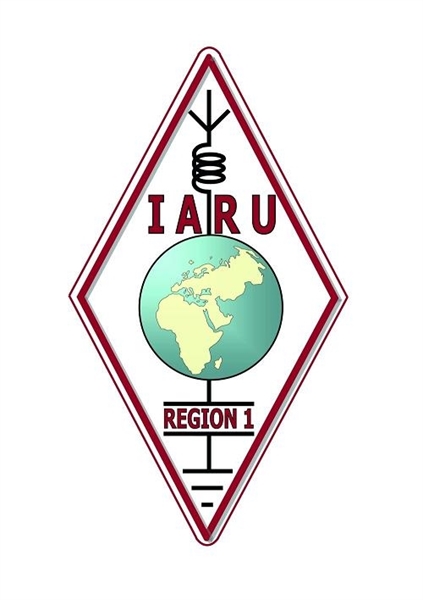
Short wave radio in the uk?
Wel that depends on what type of radio it is. If it's just like an otherwise normal radio reciever which happens to pick up shortwave bands, usually that's for listening to international broadcast stations, like say the BBC World Service and their foreign equivalents (oddly enough I never seem to get the BBC World Service a lot- it's usually China Radio Intenretional/CRI) as wel as a few religious stations- some good, some highly dodgy.
There are also two-way 'ham' radios which amateur radio operators (or 'hams') use to communicat with other 'hams' throghout the world. If you have a reciever with Single Side Band (SSB) you should theoretically be able to pick these up.
There are all sorts of other signalling things and the like out there, which enthusiasts try to pick up.
The basic principle of shortwave is that it's of a particular range of frequencies that get reflected off a layer of the Earth's atmosphere called the ionosphere, which stops them escaping into space and allows them to be heard over much longer distances- hence the international radio stations and long-distance 'ham' communication. (This principle depends on the time of day, so not all frequencies operate everywhere. I think it might have to do with the Sun ionising the atmosphere in certain ways, you'll have to check the links provided by the other answerer.)









